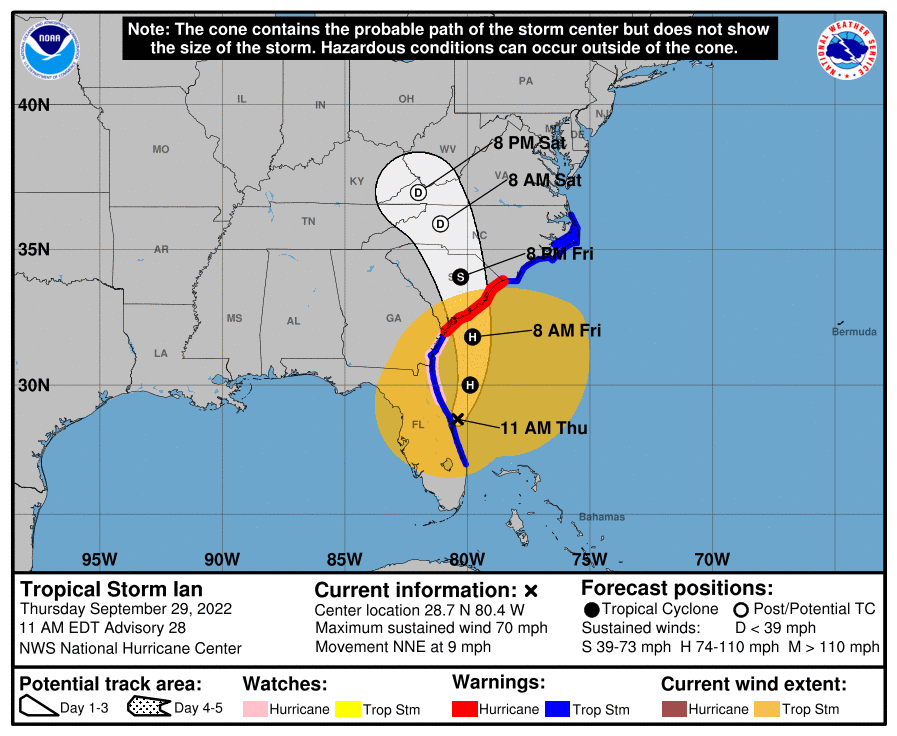Southeastern states assess supply chain disruptions after Hurricane Ian strikes
Now weakened to a tropical storm, system could regain hurricane status over Atlantic as it rolls toward South Carolina coast.

Logistics operations across Florida and the U.S. southeast region are operating under closed or restricted conditions today as they wait for flood waters to recede and electricity to come back on after the passage of Hurricane Ian across the state yesterday.
The storm made landfall at Cayo Costa, Florida, at 3:05pm on Sept. 28 as a Category 4 hurricane before griding slowly north across the state, weakening to a tropical storm as it drenched Orlando on Thursday. However, the system could regain strength in coming days as it passes over the warm waters of the Gulf Stream in the Atlantic Ocean, according to analysis by Everstream Analytics, a supply chain risk analysis firm.
Early reports show that Tampa has dodged dire predictions of flooding, but just south of that area, Ft. Myers and Naples are suffering the highest storm surge levels ever recorded for the region. Major inland flooding is now predicted for broad swaths of central and northern Florida as well as southeast Georgia and the Carolinas, according to the National Hurricane Center.
As the storm rumbles on through Friday, it could next disrupt port operations at maritime cargo facilities in Charleston, Savannah, and Jacksonville, due to a combination of high winds, heavy rain, and power grid failures for some 2.4 million customers hit by the initial winds of the storm, which is tied for the fifth most powerful to ever make landfall in the U.S., Everstream said.
Other supply chain impacts include restricted operations for regional air cargo, rail intermodal, and delivery delays announced by XPO Logistics, the U.S. Postal Service, UPS Inc., and FedEx Corp., the firm said.
Humanitarian and emergency responders on Thursday were still assessing the storm’s full impact, according to updates from the American Logistics Aid Network (ALAN), which has logged a few calls for specific aid to date but expects “many more in the days to come.”
As Southwest Florida begins rescue & relief efforts for Hurricane Ian, please resist the urge to travel to the area unless you’re a professional whose help has already been requested. Being there could compromise your safety and get in the way of essential first response efforts. pic.twitter.com/OqY02kNDs4
— ALANAid (@ALANaid) September 29, 2022
Related Articles

Copyright ©2024. All Rights ReservedDesign, CMS, Hosting & Web Development :: ePublishing